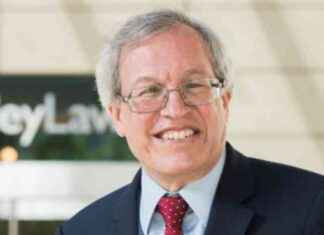Federal Judges Cleared of Misconduct in Columbia Law Grad Boycott Controversy
After a thorough review, a panel of the 11th U.S. Circuit Court of Appeals in Atlanta has determined that two federal judges, U.S. Circuit Judge Elizabeth Branch and U.S. District Judge Tilman E. Self III, did not engage in misconduct when they announced a boycott of future law grads from Columbia University. The decision comes in response to a letter signed by 13 federal judges, all appointed by former President Donald Trump, pledging not to hire Columbia graduates for clerkships due to the school’s handling of campus disruptions.
The judges’ letter, dated May 2024, criticized Columbia University as “an incubator of bigotry” and called for the institution to promote viewpoint diversity and enforce consequences for those involved in campus disruptions. The review panel’s ruling clears Branch and Self of any wrongdoing in their decision to boycott Columbia law grads.
11th Circuit Review Panel’s Decision
The review panel’s decision aligns with a similar ruling made by the 5th Circuit’s judicial council in August 2024, which found no ethics violations by eight federal judges within the 5th Circuit. The 11th Circuit Chief Judge William H. Pryor Jr. affirmed the panel’s decision, dismissing the complaint against Branch and Self.
In his response to the complaint, Pryor emphasized that federal judges have the discretion to consider applicants’ educational backgrounds when hiring law clerks. He stated that judges are permitted to make reasonable judgments about the quality of a school’s educational program as part of the hiring process.
Concerns Raised by the Complainant
The individual who filed the complaint against the judges expressed concerns about potential bias in their judicial rulings. The complainant suggested that judges who are willing to penalize a university and its graduates may demonstrate similar bias in their legal decisions. Additionally, the complainant called for an investigation into whether external organizations or foreign entities influenced the judges’ decision to boycott Columbia law grads.
Pryor responded to these concerns by stating that there is insufficient evidence to support claims of bias or hostile treatment by the judges. He emphasized the importance of factual evidence in assessing allegations of misconduct and discrimination.
Impact on Judicial Independence
The controversy surrounding the judges’ boycott of Columbia law grads raises questions about judicial independence and impartiality. Critics argue that judges should not allow personal biases or political affiliations to influence their hiring decisions or legal rulings. The case highlights the delicate balance between judicial discretion and ethical conduct within the legal system.
Moving forward, the judiciary faces the challenge of upholding the principles of fairness and impartiality while respecting judges’ autonomy in decision-making. The outcome of the review panel’s investigation sets a precedent for addressing allegations of misconduct among federal judges and maintaining public trust in the judiciary.
In conclusion, the review panel’s decision to clear Branch and Self of misconduct in the Columbia law grad boycott controversy underscores the importance of transparency and accountability in the judicial system. It serves as a reminder of the ethical standards expected of federal judges and the need to uphold the integrity of the legal profession.











